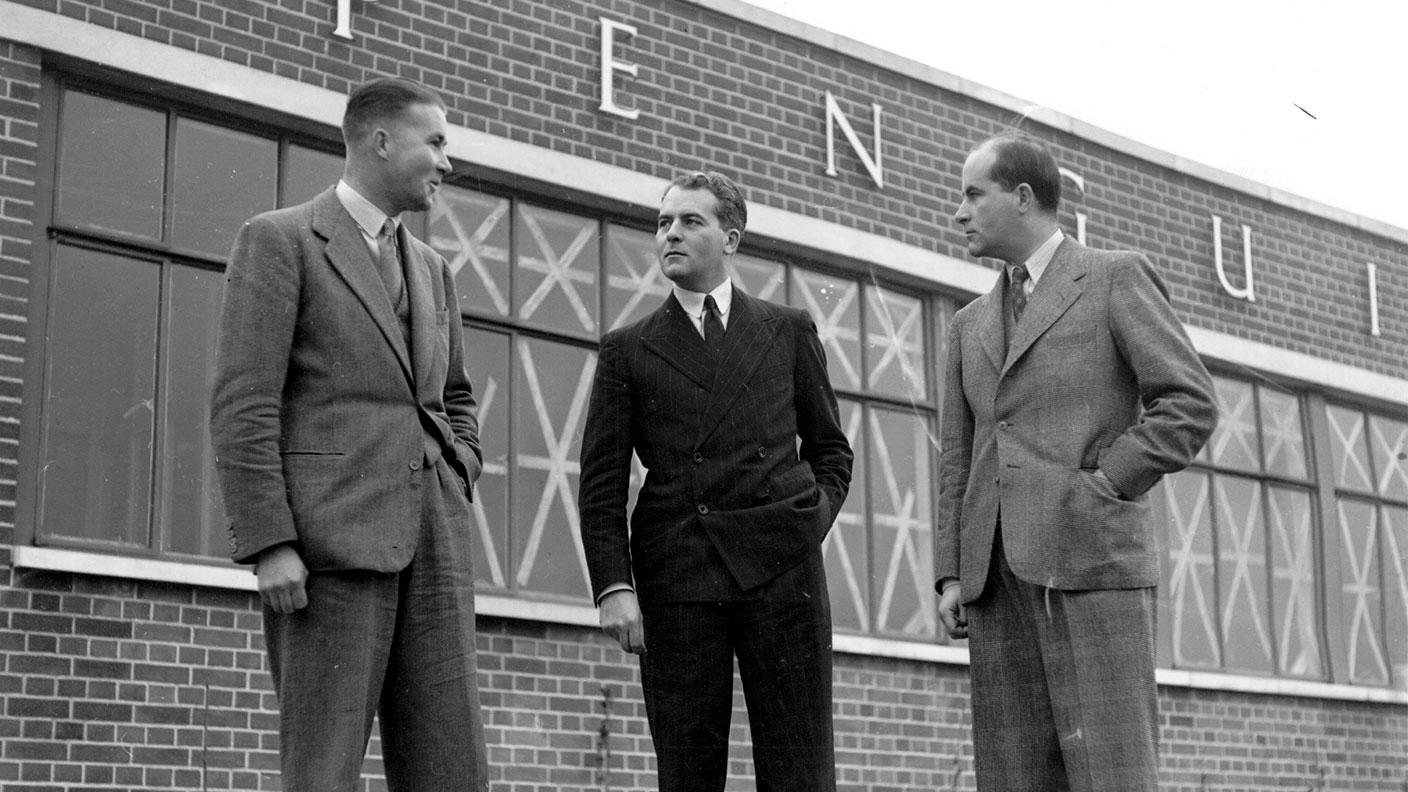30 July 1935: Penguin sparks the ‘paperback revolution’
On this day in July 1935, the first mass-market paperback books bearing the penguin logo were published. Each book cost sixpence.


Get the latest financial news, insights and expert analysis from our award-winning MoneyWeek team, to help you understand what really matters when it comes to your finances.
You are now subscribed
Your newsletter sign-up was successful
Want to add more newsletters?

Twice daily
MoneyWeek
Get the latest financial news, insights and expert analysis from our award-winning MoneyWeek team, to help you understand what really matters when it comes to your finances.

Four times a week
Look After My Bills
Sign up to our free money-saving newsletter, filled with the latest news and expert advice to help you find the best tips and deals for managing your bills. Start saving today!
A waddling, surprised-looking bird probably wouldn't make most people's list of working-class heroes. But maybe it should. We are, of course, talking about the penguin or rather, the penguin that still stares out blankly from the covers of Penguin books published today.
Before Penguin caused a flap in the book trade, if you wanted to buy a book, you had to go to a stuffy bookshop. The less well-off had to make do with borrowing one from the public library. All that changed in the summer of 1935.
Allen Lane found himself at Exeter railway station, having spent the weekend in the company of Agatha Christie. He nosed around for something inexpensive to read on the train home, but couldn't find anything – just reprints of Victorian novels, and magazines.
MoneyWeek
Subscribe to MoneyWeek today and get your first six magazine issues absolutely FREE

Sign up to Money Morning
Don't miss the latest investment and personal finances news, market analysis, plus money-saving tips with our free twice-daily newsletter
Don't miss the latest investment and personal finances news, market analysis, plus money-saving tips with our free twice-daily newsletter
Back in London, Lane decided to set up a company selling contemporary fiction cheaply. He wanted a logo that was "dignified but flippant". Why not a penguin, his secretary suggested. An employee was dispatched forthwith to London Zoo, clutching a sketch pad.
On 30 July 1935, the first books bearing the ubiquitous penguin were published orange for fiction, blue for biography and green for crime. Each book cost sixpence. Ernest Hemingway, Andre Marois and Agatha Christie led the rollout.
It's not too surprising the traditional publishers turned up their noses at the popular paperback revolution. But that didn't stop Penguin selling millions of books to avid readers of A Farewell to Arms and The Mysterious Affair at Styles in its first years.
Nor has Penguin ever been afraid of courting controversy. In 1960, it successfully overturned a ban and published Lady Chatterley's Lover. Investors were presumably still hot under their collars when Penguin listed on the London Stock Exchange a year later. The shares were 150 times oversubscribed a record for the exchange.
Get the latest financial news, insights and expert analysis from our award-winning MoneyWeek team, to help you understand what really matters when it comes to your finances.

-
 Should you buy an active ETF?
Should you buy an active ETF?ETFs are often mischaracterised as passive products, but they can be a convenient way to add active management to your portfolio
-
 Power up your pension before 5 April – easy ways to save before the tax year end
Power up your pension before 5 April – easy ways to save before the tax year endWith the end of the tax year looming, pension savers currently have a window to review and maximise what’s going into their retirement funds – we look at how
-
 31 August 1957: the Federation of Malaya declares independence from the UK
31 August 1957: the Federation of Malaya declares independence from the UKFeatures On this day in 1957, after ten years of preparation, the Federation of Malaya became an independent nation.
-
 13 April 1960: the first satellite navigation system is launched
13 April 1960: the first satellite navigation system is launchedFeatures On this day in 1960, Nasa sent the Transit 1B satellite into orbit to provide positioning for the US Navy’s fleet of Polaris ballistic missile submarines.
-
 9 April 1838: National Gallery opens in Trafalgar Square
9 April 1838: National Gallery opens in Trafalgar SquareFeatures On this day in 1838, William Wilkins’ new National Gallery building in Trafalgar Square opened to the public.
-
3 March 1962: British Antarctic Territory is created
Features On this day in 1962, Britain formed the British Antarctic Territory administered from the Falkland Islands.
-
10 March 2000: the dotcom bubble peaks
Features Tech mania fanned by the dawning of the internet age inflated the dotcom bubble to maximum extent, on this day in 2000.
-
9 March 1776: Adam Smith publishes 'The Wealth of Nations'
Features On this day in 1776, Adam Smith, the “father of modern economics”, published his hugely influential book The Wealth of Nations.
-
 8 March 1817: the New York Stock Exchange is formed
8 March 1817: the New York Stock Exchange is formedFeatures On this day in 1817, a group of brokers moved out of a New York coffee house to form what would become the biggest stock exchange in the world.
-
7 March 1969: Queen Elizabeth II officially opens the Victoria Line
Features On this day in 1969, Queen Elizabeth II took only her second trip on the tube to officially open the underground’s newest line – the Victoria Line.